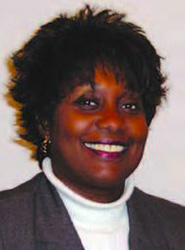by Marie Y. Philippe, Ph.D.
Corporate Vice President, Culture and Organizational Effectiveness
The Lifetime Healthcare Companies
Despite the progress around inclusion demonstrated by the increase in ethnic minority groups being represented in the higher echelons of corporate America in recent years, for many organizations, similar efforts have been slow to non-existent regarding the inclusion of openly gay individuals.
While it is commendable for twenty-one states and the District of Columbia to have adopted laws closer to the spirit of the proposed federal Employment Non-Discrimination Act (ENDA) by prohibiting employment discrimination based solely on sexual orientation, and twelve states and D.C. also prohibiting discrimination based on gender identity—organizations in these states and others may still not embrace equality for all in their work environment.
Compliance does not always imply embracement. The business case for inclusion applies for all differences. From limited recruitment of the best talent, to the loss of market growth opportunities due to a lack of human diversity embracement, your company can suffer.
Companies that truly pursue talent from all communities, including the gay community, have included most of the following practices.
What do your policies say?
Before even considering working for an organization, potential employees are savvy enough to search companies’ web sites and ask around. Does your employment equality statement include gender identity, for example—a sign that you make an effort to embrace employees beyond the standard “sexual orientation?” Does your policies and benefits summary specify, for example, adoption assistance equally for same-sex couples as heterosexual ones? Do you have a policy regarding individuals in gender transition?
How are employees educated about the rights of the gay community?
Do you regularly, and intentionally, present material to your employees to inform them about the company’s position on some of the relevant, critical issues or set up forums to discuss them with employees, gauging their opinion on gay marriage, for example? Training about gay equality is no longer limited to “the right thing to do,” but in truly engaging employees to think deeply about social justice and what it means in your work place.
What role does your organization play in the gay community?
While an organization demonstrates financial accountability by sponsoring fundraising or educational events supporting the gay community, good citizenship is epitomized when openly-gay employees, in positions of corporate power, serve on various boards of community organizations and can represent your organization in a different capacity.
Do day-to-day practices ease the comfort of employees from the gay community?
The experience employees live day-in and day-out in the work environment plays a significant role in their retention rate. Employees who feel accepted and free to be who they are tend to act very similarly, regardless of their diversity dimensions. Are employees who are members of same-gender families comfortable displaying photos of their families at their work stations? Do their partners attend the Christmas parties and feel free to dance, as do heterosexual couples?
It takes more than good intentions, training, and policies to create the work environment that allows gay employees to blossom as individuals and as contributors to the success of your company. Take a look around and ask yourself, are we truly gay-friendly?

Marie Y. Philippe, Ph.D.
Corporate Vice President, Culture and Organizational Effectiveness
The Lifetime Healthcare Companies
Well known for her leadership contribution in corporate culture transformation through strategic diversity initiatives and organizational change management. She can be reached at [email protected].






